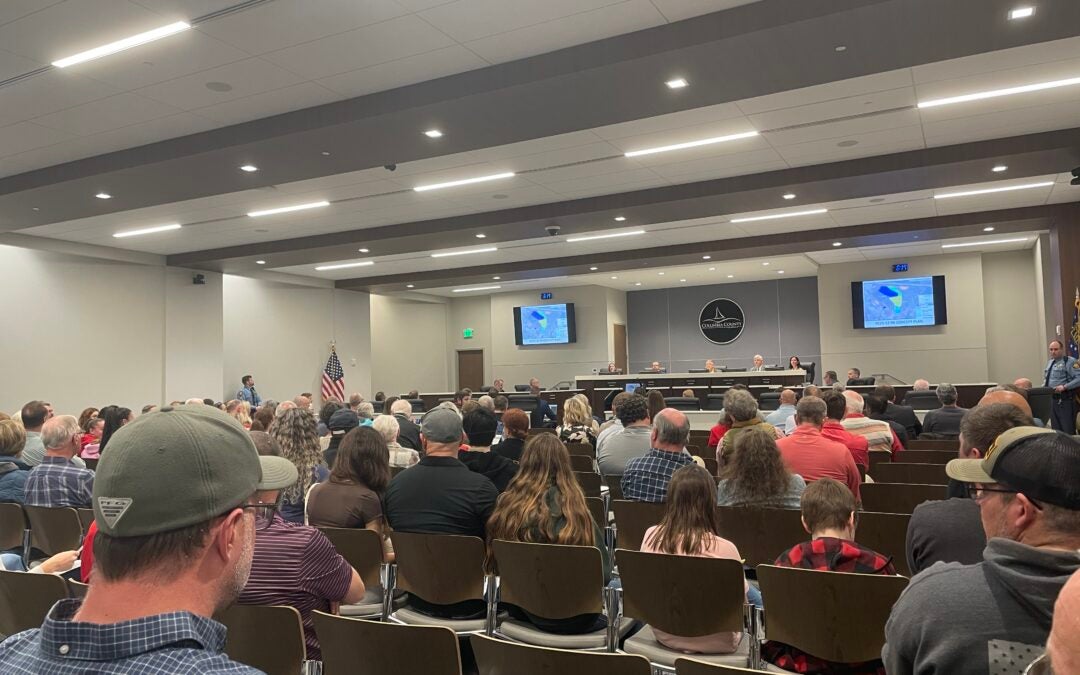By T.A. DeFeo | The Center Square contributor
(The Center Square) — In the 50-plus years since a murderer took his nine-year-old sister’s life, Melvin Randall and his family have always wondered what happened.
“We’ve always been worried about it, wondering who it was,” Randall said. “It’s weighed heavy on us for a long time, and to find out [the details] and to know that it’s over is a great relief to my family and me.”
Randall said he didn’t lose hope authorities would solve what happened to Debbie Lynn Randall in January 1972. While his mother and father died before discovering the truth, Melvin Randall learned who authorities say was responsible for his sister’s death — William B. Rose of Mableton, who committed suicide in 1974 — thanks to DNA testing and the dogged pursuit of a cold case.
A $535,000 grant from the federal Bureau of Justice Assistance helps fund Cobb County’s cold case squad, which at the time of the grant had “physical case files” for roughly 100 unsolved violent crimes, sexual assaults and murders — about 10% with DNA from a suspect. District Attorney Flynn Broady told The Center Square more money is needed for DNA testing.
“As prosecutors, we have a dual duty, not only for the victim — are we protecting their rights — but we also have to protect offenders’ rights,” Broady said in an exclusive interview. “When it comes to DNA, it’s important that we have the funding for it because sometimes DNA can eliminate suspects.”
However, DNA testing and investigating cold cases is a costly affair. The GBI’s in-house testing averages about $600 per case, while a vendor’s lab averages between $1,000 and $1,900.
“Our GBI has a lack of funds for testing, even for our drug testing,” Broady said. “So, money needs to be placed in the GBI to be able to do those things so we can bring people to justice. It shouldn’t take us a year to get results on a drug test, which, at the same time, provides an opportunity for that person to either leave the state or get their life together.
“…It’s just a matter of the Legislature saying, we’re going to dedicate this amount of money to DNA testing to help us solve crimes,” Broady said. “That’s the biggest issue, and it costs a lot of money because we’re farming out to do something that if we do it right, we bring people to justice, or we make sure people don’t get brought to justice who haven’t perpetrated a crime.”
How state officials might push for additional funding is opaque. Like so many issues, officials are reticent to state their position publicly.
A GBI spokeswoman told The Center Square the agency is still finalizing its funding priority requests.
“DNA testing is an essential tool in solving crime,” Nelly Miles, director of the GBI’s Office of Public and Governmental Affairs, said in an email. “Testing is costly and the Governor’s Office and state legislators have been supportive in awarding funding in our previous GBI budgets, as well as access to grants to test DNA evidence.
“We are in the budget proposal process now & are hopeful and have no reason to believe that this has changed,” Miles added.
Spokesmen for Gov. Brian Kemp, a Republican who routinely touts his record on public safety, did not respond to requests for comment, while a spokeswoman for Attorney General Chris Carr, a Republican, declined to comment.
“The Lt. Governor has always supported Georgia’s law enforcement community and will continue to prioritize any resources they need to protect all Georgians,” Ines Owens, a spokeswoman for Lt. Governor Burt Jones, a Republican, told The Center Square in a text.
In April, Kemp signed House Bill 88, the Coleman-Baker Act, which allows families of homicide victims to request authorities to review cold cases. The state’s fiscal 2024 budget included $5.4 million for the agency’s cold case unit.










